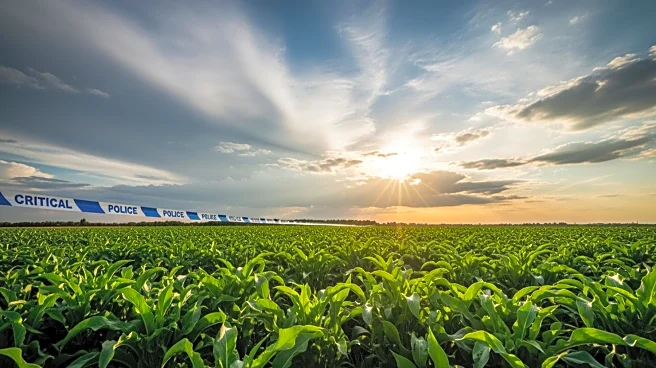What's Happening?
The 30th United Nations Climate Change Conference (COP30) is set to take place in Belém, Brazil, bringing together global leaders, scientists, and civil society to address urgent climate change actions.
The Food and Agriculture Organization of the United Nations (FAO) is emphasizing the critical role of agriculture and food security in these discussions. Climate extremes are already affecting food production, with yields dropping and unpredictable weather complicating harvesting. The FAO is advocating for sustainable and resilient agrifood systems as central to climate action, aiming to integrate these systems into national climate plans and increase climate finance directed towards agrifood solutions.
Why It's Important?
The impact of climate extremes on food yields is a pressing issue, as it directly affects global hunger levels, which remain high at around 700 million people. The FAO's focus on agrifood systems is crucial for achieving the Paris Agreement goals, as these systems are vital for food security and nutrition for 1.2 billion people. Redirecting climate finance towards agrifood solutions is essential, as currently only 4% of climate-related development finance reaches sectors responsible for food production. The conference provides an opportunity to elevate the role of forests and integrate traditional knowledge from Indigenous Peoples into strategies for food security.
What's Next?
COP30 is expected to reaffirm the importance of agriculture and food systems in climate discussions, focusing on adaptation, mitigation, resilience, and climate finance. The FAO aims to support countries in negotiations and amplify the voices of farmers, rural communities, smallholders, and Indigenous Peoples. The conference will highlight the role of Indigenous Peoples, with around 3,000 participants expected, emphasizing the integration of traditional knowledge into climate strategies. The FAO is committed to turning ambition into action by integrating agrifood systems solutions into national climate plans and scaling them up for maximum impact.
Beyond the Headlines
The integration of traditional knowledge from Indigenous Peoples into climate strategies is a significant aspect of COP30. This knowledge is invaluable for building resilience and safeguarding the future in the face of climate uncertainty. Initiatives like the cabruca system in Brazil, where cocoa trees grow beneath a canopy of native species, demonstrate the importance of supporting those who work the land. COP30 aims to move agrifood systems from the margins to the center of climate action, ensuring sustainable management of forests and ecosystems.










